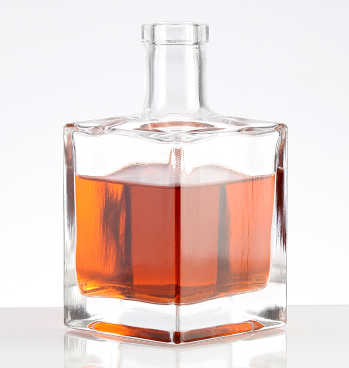How do I compare the durability and thickness of different glass bottles for safe storage and transportation?
When evaluating the durability and thickness of different glass bottles for safe storage and transportation, it's essential to consider specific factors that impact their strength and ability to withstand handling, storage, and transportation conditions. Here are the key steps to effectively compare the durability and thickness of different glass bottles:
1. Material Composition: Begin by examining the material composition of the glass bottles. High-quality glass bottles are typically made from soda-lime glass or borosilicate glass. Borosilicate glass is known for its higher resistance to thermal shock and chemical corrosion, making it a preferred choice for certain applications.
2. Glass Thickness: Measure the thickness of the glass walls on each bottle. Thicker glass walls generally indicate higher durability and strength. However, it's essential to strike a balance between thickness and weight, as excessively heavy bottles may not be practical for some applications.
3. Weight and Heft: Compare the weight and heft of different High-quality glass bottles . A heavier bottle may suggest thicker glass walls and enhanced durability. However, lightweight bottles can also be durable if they are made from high-quality glass with appropriate reinforcement.
4. Impact Resistance: Assess the impact resistance of the glass bottles by researching or conducting tests, if possible. Some manufacturers may provide information on the impact resistance of their bottles. Bottles with higher impact resistance are less likely to break or shatter during handling and transportation.

5. Design and Shape: Consider the design and shape of the glass bottles. Bottles with reinforced shoulders and bases tend to offer improved durability. Additionally, cylindrical or round bottles distribute stress more evenly, enhancing their ability to withstand pressure.
6. Surface Treatment: Evaluate whether the glass bottles have undergone any surface treatment, such as tempering or strengthening processes. These treatments can enhance the bottles' durability and resistance to mechanical stresses.
7. Manufacturing Standards: Check if the glass bottles adhere to relevant manufacturing standards, such as ISO standards or industry-specific guidelines. Bottles manufactured in compliance with established standards are more likely to meet quality and durability requirements.
8. Impact Testing (If Possible): If the bottles are intended for high-risk applications or critical use, consider conducting impact testing. Impact tests involve subjecting the bottles to controlled impacts to assess their resistance to breakage.
9. Supplier Reputation and Track Record: Choose glass bottle suppliers with a reputation for delivering high-quality and durable products. Seek feedback from other customers or industry peers to gauge the supplier's track record.
10. Consult with Packaging Experts: If you're unsure about the specific requirements for safe storage and transportation in your industry, consider consulting with packaging experts or engineers who can provide valuable insights and guidance.
Conclusion: Comparing the durability and thickness of different Custom glass bottles for safe storage and transportation involves evaluating their material composition, glass thickness, weight, impact resistance, design, surface treatment, adherence to standards, and supplier reputation. By conducting thorough assessments and considering the specific needs of your application, you can make informed decisions that ensure safe and reliable packaging solutions for your products. Prioritizing durability and quality will contribute to the protection of your goods during storage and transportation, as well as enhance customer satisfaction and confidence in your products.



